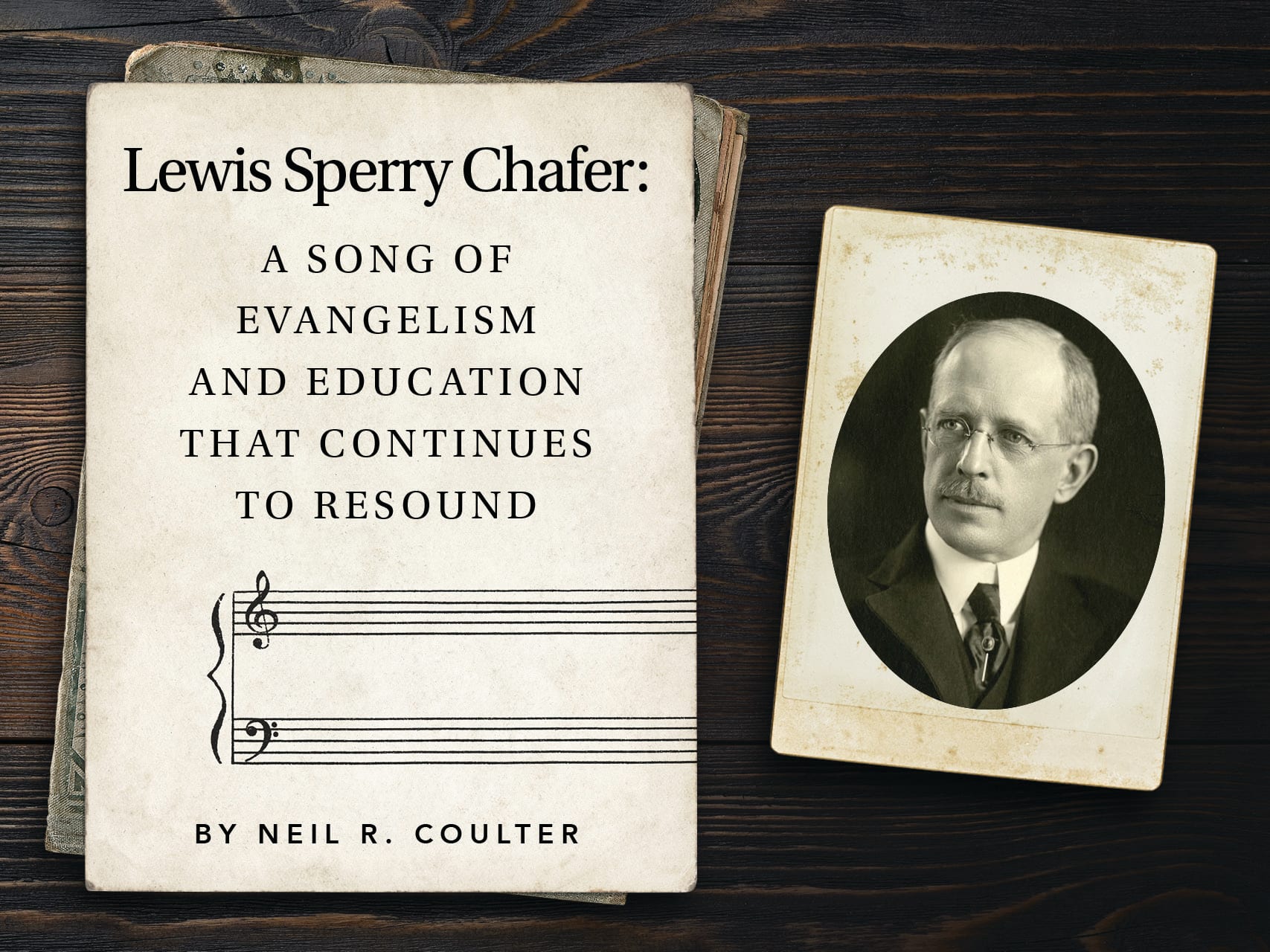Lewis Sperry Chafer: A Song of Evangelism and Education that Continues to Resound

LEWIS SPERRY CHAFER’S LIFE WAS A SONG THAT RESOUNDS THROUGH HIS ENDURING LEGACY, FROM DALLAS, TEXAS, TO THE WORLD.
That melody began in humble surroundings in Rock Creek, Ohio, in 1871. Chafer was raised by a father who was a Congregational pastor. An early note of sorrow occurred with the death of Chafer’s father when Chafer was just eleven years old. His mother’s continued care of the family following that tragic loss affirmed a value for education and persistence that would remain with Chafer all his days. His schooling and talents led him to Oberlin Conservatory of Music, where he studied for three semesters before leaving to pursue growing opportunities for evangelism through singing and preaching.
By age 25, Chafer had met and married the woman who would be his lifelong partner in ministry and his musical accompanist, Ella Loraine Case. Following their marriage, the Chafers took a series of ministry roles in churches throughout the northeast United States. Evangelistic and musical work with D. L. Moody’s conferences in 1901 introduced Chafer to C. I. Scofield, who was to become one of Chafer’s most significant father figures and mentors. Chafer’s work as a teacher with Scofield’s correspondence school took him on travels from his home area of New York to the southern states, broadening his perspective and further honing his skills as a communicator.
In 1922, Chafer moved to Dallas, Texas, and became the pastor of First Congregational Church (later renamed Scofield Memorial Church and now Eastside Community Church) and director of the Central American Mission, after Scofield passed away. At about this time, having long understood the benefits of a good education—and particularly for those called to serve in ministry—he began conceiving of an idea for a new kind of Bible training school. And so in 1924, he founded the Evangelical Theological College, twelve years later renamed Dallas Theological Seminary. Chafer’s vision for the school was to institutionalize the devotional, applied, and philological training methods of the Bible conference movement that had been so formative in his own development. He continued to serve at the seminary for the rest of his life as the school’s president and professor of systematic theology.
In his educational philosophy, Chafer favored a restrained, well-reasoned approach. Doctrinally, he aligned with fundamentalism, but he avoided the emotional or militant stances sometimes associated with other representatives of the movement. In his writing—numerous articles and books, including the multivolume Systematic Theology of 1948—and his teaching, he championed premillennialism and dispensationalism, assertions that sometimes found him in conflict with other theologians who perceived discord between Chafer’s views and the Westminster Confession. These denominational conflicts reaffirmed Chafer’s basic belief in the nondenominational Bible training ethos of Dallas Theological Seminary.
Other early conflicts at the seminary centered on Chafer’s funding model. Chafer wanted to pursue the principle of missionary heroes such as George Müller and Hudson Taylor: waiting on God to provide finances as needed rather than directly soliciting funds from donors. Ongoing funding shortages and mounting debts resulted in strife amongst the seminary’s faculty and staff, bringing pressure on Chafer. He suffered ongoing health problems, eventually succumbing to heart failure that ended his life in August 1952.
By far the most lasting legacy of Chafer’s life is the influence that he had on the many students of Dallas Theological Seminary in the twenty-eight years of his service to the school. His effective, gracious character as a teacher and communicator is evidenced by the loyalty and love of his students. Today at Dallas Theological Seminary, now with four vibrant campuses, several regional locations, and a robust online education program that reaches all over the world, the song of Lewis Sperry Chafer’s life continues.
About the Contributors

Neil R. Coulter
Neil R. Coulter completed degrees in music performance and ethnomusicology from Wheaton College and Kent State University. He and his family lived in Papua New Guinea for twelve years, where Neil served as an ethnomusicology and arts consultant for Wycliffe Bible Translators. In 2015, he helped design and launch the PhD in World Arts at Dallas International University. He teaches doctoral courses in theory and ethnography at DIU’s Center for Excellence in World Arts. At DTS, he teaches about art, literature, film, and theology, and he is senior writer and editor of DTS Magazine. Neil is married to Joyce, and they have three sons.

